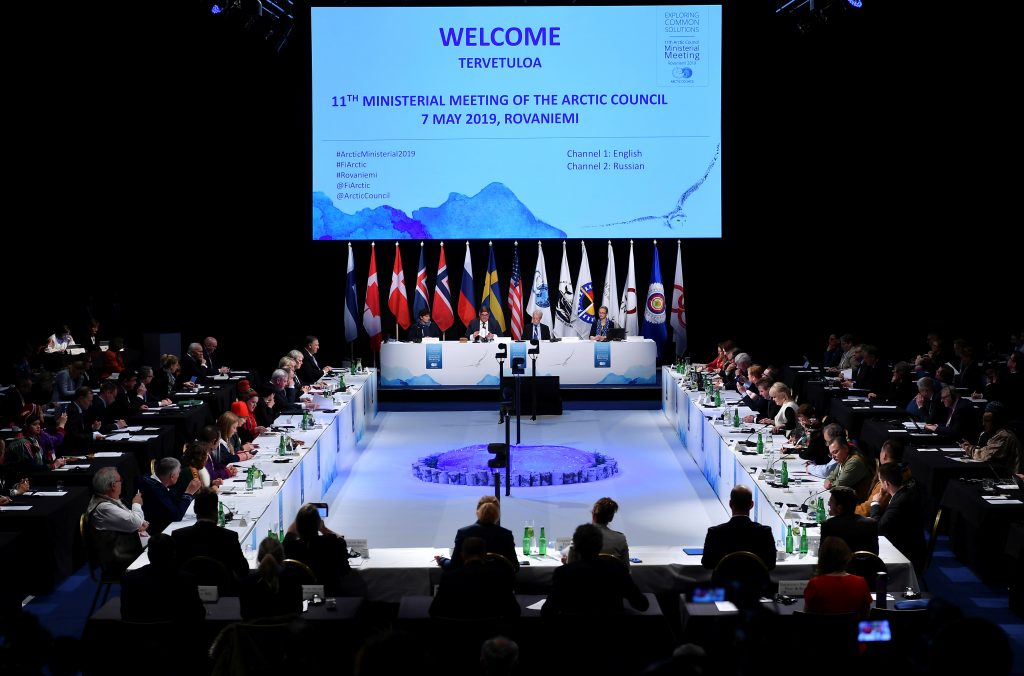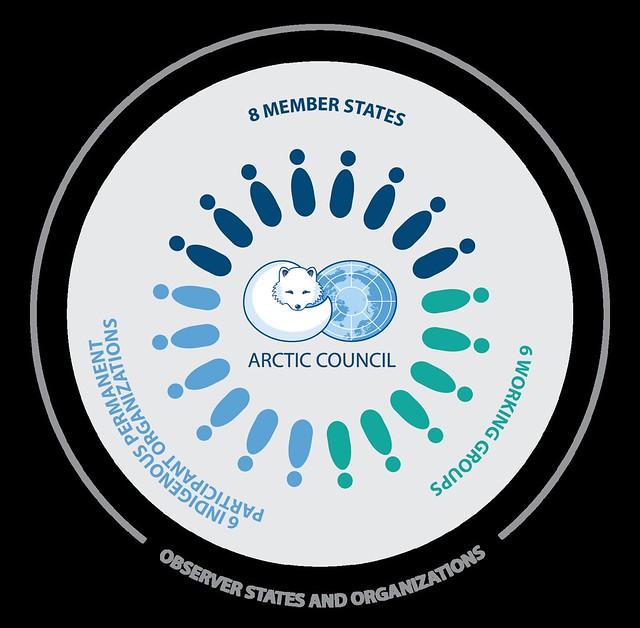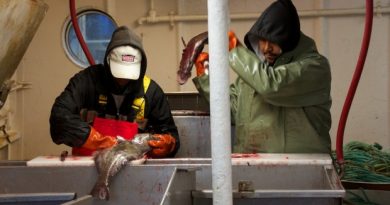Estonia to apply for observer status within Arctic Council

Foreign Ministers attend the Arctic Council summit at the Lappi Areena in Rovaniemi, Finland May 7, 2019. (Mandel Ngan/Reuters)
The Estonian government announced on Thursday that it will formally apply for an observer status within the Arctic Council in order to increase its involvement on issues related to the region.
“Considering the increasing challenges from the Arctic, it is a chance for Estonia to get more involved internationally with topics related to the Arctic,” said Urmas Reinsalu, Estonia’s foreign minister, in a news release. “The Arctic Council is one of the most important cooperation forums dealing with the region’s issues and it addresses the sustainable development and protection of the environment of the Arctic.”
The Foreign Minister proposed to apply at a cabinet meeting which then adopted the idea as a government decision.
Reinsalu said that the sustainable development of the Arctic required not only the involvement of Arctic states but also the political support of other countries and international organizations.

Interest in Science, Economy and Security
With this status, the Foreign Minister intends to involve Estonian scientists and companies in new cooperation projects in the region. Estonia mainly shows interest in three domains—science, economy and security.
“For example, the observer status would grant our scientists who are engaged in polar studies a greater access to research funds, and would enhance research through working groups,” said Reinsalu in a news release.
Fisheries, logistics and green technology in the Arctic are of particular economic interest for the country.
An observer status allows members to take part in meetings of the Arctic Council as well as submit written statements at ministerial meetings.
They can also propose projects through an Arctic State or a Permanent Participant.
However, to apply for an observer status, the candidate must follow some criteria. It must, for instance, accept and support the objectives of the Arctic Council, recognize that an extensive legal framework applies to the Arctic Ocean as well as respect the values, interests, culture and traditions of Arctic indigenous peoples and other Arctic inhabitants.
In addition, the candidate needs to show sufficient expertise and interest relevant to the work of the council as well as financial ability to contribute to this work.

The Arctic Council is an international forum made up of Canada, Denmark, Finland, Iceland, Norway, Sweden, Russia and the United States; and six Arctic Indigenous groups; the Aleut International Association, the Arctic Athabaskan Council, the Gwich’in Council International, the Inuit Circumpolar Council, the Russian Association of Indigenous Peoples of the North and the Saami Council.
The council was established in 1996 to work on sustainable development and environmental protection in the North.
Thirteen non-arctic states, such as France, India or China have already been approved as Observers to the Arctic Council.
Fourteen intergovernmental and inter-parliamentary organizations and twelve non-governmental organizations are also approved Observers in the council.
Estonia will know if the country is granted the observer status at the next ministerial meeting in 2021.
Related stories from around the North:
Canada: Better wildfire & agriculture management among recommendations from Arctic Council black carbon expert group, Eye on the Arctic
Finland: Did Finland fail as Chair of the Arctic Council?, Blog – Timo Koivurova
Iceland: Arctic Council group lobs GPS-bugged capsules into Atlantic to track litter trajectories in the North, Eye on the Arctic
Norway: Norway to focus on civil society, press freedom as chair of Barents Euro-Arctic Council, The Independent Barents Observer
Russia: Putin, Modi work on Arctic cooperation during Russia meeting, The Independent Barents Observer
Sweden: Sweden’s FM calls for more EU involvement in Arctic as country hosts EU Arctic Forum, Radio Sweden
United States: Finnish and US Presidents agree on Arctic security policies, Eye on the Arctic



